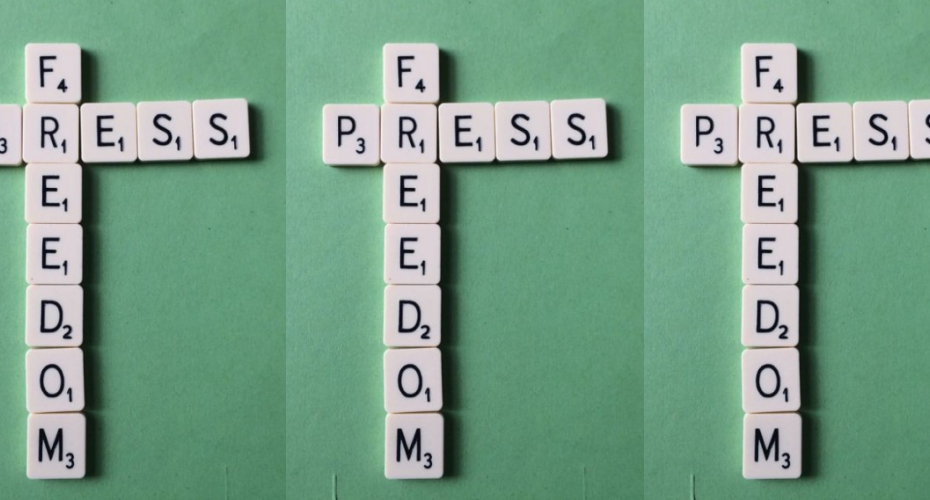New Delhi: In a recent assault on press freedom, the YouTube channel of ‘Bolta Hindustan’, a Hindi news platform which had close to 3 lakh subscribers was suspended.
On April 4, the Bolta Hindustan team got an email from YouTube in which it was stated that the video streaming platform had received a notice from the Ministry of Information & Broadcasting (MIB) directing that Bolta Hindustan’s YouTube channel be blocked with concern to Rule 15(2) of the Information Technology Rules 2021, read with Section 69A of the Information Technology Act, 2000.
YouTube also informed Bolta Hindustan that the notice it received from MIB was confidential so they were unable to share it with the news platform which was founded in 2015.
But for Bolta Hindustan, and its team of a handful, the suspension of their YouTube channel comes barely months after the suspension of their Instagram handle, which had 40,000 followers.
“We were trying to access our Instagram in January and it was randomly disabled for not following community guidelines on fraud and deception,” said Haseen Rehmani, founder, Bolta Hindustan.
Before being blocked by YouTube, the last video, Rehmani recalls was focused on the bail granted to Aam Aadmi Party (AAP) MP Sanjay Singh in a case linked to the Delhi liquor policy scam.
“We even appealed to YouTube, to understand which video actually violated their guidelines, but instead, they deleted the entirety of our work on the platform,” Rehmani lamented.
As a small-scale media start-up, Bolta Hindustan has over the years reported on several important issues that the nation has been grappling with — from the Citizenship Amendment Act (CAA), National Register of Citizens (NRC), to farmers’ protests, Covid-19, Hathras case and news that they claim does not make it to the mainstream media.

“We don’t just do one story on an issue, we do follow up stories and continue to keep an eye on the issue. Even Facebook has had the same behaviour with us, our channel has never violated any guidelines, yet our channel has not been monetised,” Rehmani shared.
Following the suspension of the channel, several journalists and activists condemned and called out YouTube for its action.
“We have simply been targeted for speaking truth to power. At a time when a miniscule percentage of media channels report the actuality of issues. This was clearly an attempt to curb Bolta Hindustan’s voice and support base” he added.
Rehmani also believed that the government targeting platforms that question, raise queries and call out their actions, has become a norm now.
“We started this news platform to fill the void in the news cycle. All our staff are from IIMC and are dedicated to voicing news and concerns of the citizenry which mainstream media brushes under the carpet,” Rehmani explained.
In another instance related to the controversial Information Technology Act, The Caravan magazine was also ordered to take down its article on allegations of torture and murder against the Indian Army in Jammu and Kashmir’s Poonch district.
The magazine was told that if it fails to take down the article from its website within 24 hours, the entire website would be taken down.
The article, published in the February issue of the magazine and written by journalist Jatinder Kaur Tur, was an extensive report titled ‘Screams from the Army Post’. It centred around the killing of three civilians allegedly by unidentified soldiers on December 22, 2023 which had been widely reported in the media. Locals have held that the men were killed in army custody, and videos of them being tortured had gone viral. The Army has simply said that the matter is under investigation.
Like Bolta Hindustan, The Caravan’s story also involved the MIB invoking the Section 69A of the IT Act.
Owing to the declining trend that appeared in 2017, India’s press freedom rank has consistently dropped. This further slid to 161 out of 180 countries surveyed in the World Press Freedom Index released by Reporters Without Borders in 2023.
While on the one hand platforms like Bolta Hindustan are blocked on government orders from functioning, Doordarshan’s contentious decision to beam the allegedly Islamophobic movie The Kerala Story, displays the disbalance existing in the media landscape.
In Kerala, the ruling Left Democratic Front (LDF) as well as the Opposition United Democratic Front (UDF) have accused the BJP-led Central government of using the broadcast of the contentious film to spark sectarian divisions and cause communal polarisation in the region ahead of the 2024 Lok Sabha elections.
The prime example of media polarisation reflecting itself in the Reliance Industries group led by Mukesh Ambani, now an alleged ally of Prime Minister Modi, who owns more than 70 media outlets that are followed by at least 800 million Indians.
Likewise, in 2022, the takeover of the NDTV channel by tycoon Gautam Adani, also very close to PM Modi, etched the end of diversity in the mainstream Indian media.
This article was first published on The Wire on April 6, 2024.
Also Read: Under Attack from Hindutva Forces, ‘Convent’ Schools Fight for Survival












